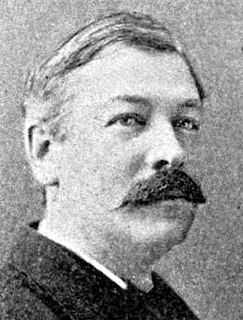A Quote by Charles Caleb Colton
He that has energy enough to root out a vice should go further, and try to plant a virtue in its place.
Related Quotes
He that has energy enough in his constitution to root out a vice should go a little further, and try to plant a virtue in its place; otherwise he will have his labor to renew. A strong soil that has produced weeds may be made to produce wheat with far less difficulty than it would cost to make it produce nothing.
Faith is the root, the necessary beginning. Hope is the stem, the energy that makes the plant grow. Love is the fruit, the flower, the visible product, the bottom line. The plant of our new life in Christ is one; the life of God comes into us by faith, through us by hope, and out of us by the works of love.
All human affairs follow nature's great analogue, the growth of vegetation. There are three periods of growth in every plant. The first, and slowest, is the invisible growth by the root; the second and much accelerated is the visible growth by the stem; but when root and stem have gathered their forces, there comes the third period, in which the plant quickly flashes into blossom and rushes into fruit.
Taste and elegance, though they are reckoned only among the smaller and secondary morals, yet are of no mean importance in the regulations of life. A moral taste is not of force to turn vice into virtue; but it recommends virtue with something like the blandishments of pleasure, and it infinitely abates the evils of vice.




































